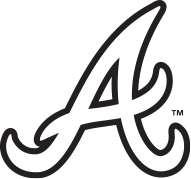

As the Braves dismantled their team in 2014 and 2015, they did so with a long-term plan in place.
The rebuilt farm system would begin to produce big leaguers just as the team moved into its new ballpark in 2017. The team, freed of significant long-term contracts, would be able to add talent as needed on the free agent market in 2018. With the help of the increased revenue of the new ballpark, the team would contend by 2018, with a loaded farm system both producing big leaguers and trade assets.
This offseason didn’t go according to plan.
The architects of that plan have been deposed. The organization has been disgraced, and now the new leadership has to finish the rebuild after the most embarrassing off-season in Braves history. Major League Baseball discovered rampant cheating helped the Braves sign players on the international market and may have helped sign a draft pick as well.
The list of Braves violations is long and varied, stretching across the international signing market and the draft. The punishment commissioner Rob Manfred handed down was one of the harshest in baseball history. Twelve Braves players were declared free agents—including Venezuelan shortstop Kevin Maitan—and a 13th player’s contract was not approved. The team also lost a 2018 third-round draft pick, and the team will face international signing sanctions for the rest of the decade.
General manager John Coppolella and international scouting director Gordon Blakeley were fired. Coppolella was permanently banned from baseball. President of baseball operations John Hart left voluntarily.
The Braves moved quickly to bring in experienced leadership, hiring former Blue Jays GM Alex Anthopoulos to try to carry the rebuild to fruition. He inherits a team well equipped to rebuild.
Atlanta opened its new ballpark, a suburban stadium that is part of a planned retail-residential development that should bolster revenue for decades, allowing the team to increase its payroll.
And there is a solid lineup core already in place, thanks to Freddie Freeman, Ender Inciarte and the young double-play combo of Ozzie Albies and Dansby Swanson. Outfielder Ronald Acuna, the Minor League Player of the Year, gives the team another potential cornerstone.

MIKE ZARRILLI/GETTY IMAGES
Second baseman Ozzie Albies gained traction in Atlanta during a strong rookie season.
The front office turmoil does create an unusual dynamic. What Anthopoulos and his staff will have to do is figure out which of the team’s many pitching prospects are big league starters, which are relievers and which ones are best traded elsewhere.
PROJECTED 2021 LINEUP
Catcher |
Alex Jackson (25) |
First Base |
Freddie Freeman (32) |
Second Base |
Ozzie Albies (25) |
Third Base |
Austin Riley (23) |
Shortstop |
Dansby Swanson (28) |
Left Field |
Ender Inciarte (31) |
Center Field |
Cristian Pache (22) |
Right Field |
Ronald Acuna (23) |
No. 1 Starter |
Luiz Gohara (25) |
No. 2 Starter |
Mike Soroka (24) |
No. 3 Starter |
Kyle Wright (25) |
No. 4 Starter |
Julio Teheran (31) |
No. 5 Starter |
Ian Anderson (23) |
Closer |
A.J. Minter (28) |
Atlanta will likely begin the 2018 season with three first- or second-year big leaguers in its rotation. A full rotation of candidates—including Top 10 Prospects Luiz Gohara, Mike Soroka, Kyle Wright, Kolby Allard and Max Fried—will be lined up behind them at Double-A and Triple-A. If the team is going to contend by 2019, the new front office must sort through the arms quickly.
Anthopoulos’ staff in Toronto did an excellent job of drafting and developing pitchers, though the Blue Jays did trade away some of the best of their arms, including righthanders Noah Syndergaard, Daniel Norris and Joe Musgrove. In Atlanta, he and his staff will have to get up to speed quickly on whom to keep and whom to trade.